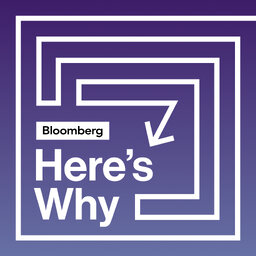The Fall
It's all about what the fall will bring. For market participants, Jackson Hole might provide a clue - Jonathan Levin joins on the Fed's glide-path. Leonid Bershidsky discusses the evolution of Russia's war in Ukraine and how Russians who have left, or want to leave, should proceed. Andreas Kluth joins from Berlin on Germany's energy conundrum: should the country delay nuclear exit a fourth time? Should it ration usage in a war economy pose?
In 1 playlist(s)
Bloomberg Opinion
Deeper conversations on the week's most significant developments. Tune in and join in!Social links
Follow podcast
Recent clips

Introducing 'Here's Why' - Complex News Stories Explained
00:30

Airline Mergers and Restaurant Loyalty
35:20

Fossil Fuel Use and Drug Development
35:28
 Bloomberg Opinion
Bloomberg Opinion